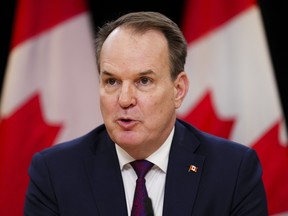Health
Pediatricians Warn of Risks from Surge in Sports Betting Ads

The rise of sports betting advertisements has raised significant concerns among medical professionals regarding the potential risks to children and adolescents. Dr. Shawn Kelly, a pediatrician and specialist in addictions medicine from Ottawa, shared a personal experience that highlighted the issue. During a conversation with his seven-year-old son, a budding hockey fan, the child confused a hockey statistic with a gambling term. This moment underscored how intertwined sports and gambling advertising have become.
Since the Canadian federal government lifted its ban on single-game sports betting in 2021, there has been a substantial increase in gambling ads associated with sports broadcasts. The presence of these advertisements has prompted calls for stricter regulations to protect young audiences. Dr. Kelly expresses his concern that children are being exposed to gambling concepts at a formative age, leading to a troubling normalization of gambling behavior.
In a recent editorial published in the Canadian Medical Association Journal (CMAJ), Dr. Kelly and co-author Dr. Shannon Charlebois address the potential harms posed by sports betting advertisements. The editorial urges the federal government to implement “strong, effective” legislation aimed at safeguarding youth from exposure to gambling promotions. This includes the expediting of Bill S-211, which seeks to create a national framework for regulating sports betting advertising.
The normalization of gambling among youth is alarming. A 2019 survey revealed that approximately four percent of Canadian students in grades 7-12 reported an urge to gamble, with two percent displaying symptoms of gambling addiction. As the culture surrounding sports viewing evolves, the authors of the editorial stress that the impact of smartphones has exacerbated the issue.
“The legalization of online gambling in Ontario in 2022 turned any smartphone into a betting platform,” the editorial notes, indicating the accessibility of gambling has increased significantly. According to iGaming Ontario, approximately $63 billion was wagered in the province between April 1, 2023 and March 31, 2024. Despite age restrictions, underage gambling remains prevalent, with the Canadian Pediatric Society citing that it can begin before the age of ten.
The potential consequences of problem gambling in minors are severe. Research has linked youth gambling issues to an increased risk of suicide, substance use disorders, and other dangerous behaviors. A study from the United Kingdom highlighted that males facing gambling problems had a ninefold increase in suicide risk, while females experienced a nearly fivefold increase. The editorial cites a Norwegian study indicating that suicide was the leading cause of death among individuals with gambling issues.
Dr. Kelly describes the current landscape of gambling advertising as reminiscent of “the Wild West,” expressing his apprehension over the lack of significant regulations. He likens the situation to constructing a playground on the edge of a cliff, emphasizing the dangers posed to children. He is beginning to encounter young patients with gambling-related issues, a trend he anticipates will worsen if regulatory measures are not implemented.
Adolescents are particularly vulnerable to these risks due to the developmental differences in their brains. Dr. Kelly explains that the reward center of adolescents is often more active than the areas responsible for impulse control, making them more prone to risky behaviors. The editorial cautions that the pervasive promotion of sports betting represents a “willful mortgage of Canada’s future” to private interests.
In light of these concerns, the authors advocate for the elimination of sports betting commercials during broadcasts likely viewed by minors. They urge Canadian jurisdictions to take immediate action to protect the health and well-being of the youth from the risks associated with gambling advertising, ensuring a safer environment for young sports enthusiasts.
-

 World3 months ago
World3 months agoScientists Unearth Ancient Antarctic Ice to Unlock Climate Secrets
-

 Entertainment3 months ago
Entertainment3 months agoTrump and McCormick to Announce $70 Billion Energy Investments
-

 Lifestyle3 months ago
Lifestyle3 months agoTransLink Launches Food Truck Program to Boost Revenue in Vancouver
-

 Science3 months ago
Science3 months agoFour Astronauts Return to Earth After International Space Station Mission
-

 Technology2 months ago
Technology2 months agoApple Notes Enhances Functionality with Markdown Support in macOS 26
-

 Top Stories2 weeks ago
Top Stories2 weeks agoUrgent Update: Fatal Crash on Highway 99 Claims Life of Pitt Meadows Man
-

 Sports3 months ago
Sports3 months agoSearch Underway for Missing Hunter Amid Hokkaido Bear Emergency
-

 Politics3 months ago
Politics3 months agoUkrainian Tennis Star Elina Svitolina Faces Death Threats Online
-

 Technology3 months ago
Technology3 months agoFrosthaven Launches Early Access on July 31, 2025
-

 Politics3 months ago
Politics3 months agoCarney Engages First Nations Leaders at Development Law Summit
-

 Entertainment3 months ago
Entertainment3 months agoCalgary Theatre Troupe Revives Magic at Winnipeg Fringe Festival
-

 Politics2 weeks ago
Politics2 weeks agoShutdown Reflects Democratic Struggles Amid Economic Concerns





















